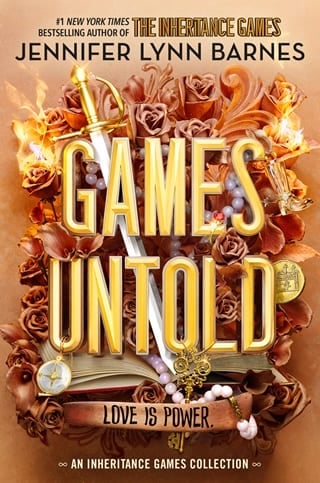Then
Then
M y hair is a half-dozen different colors. My sister is awake. The world is as it should be… except for the fact that I let Nash Hawthorne wash my hair.
I let him dye it for me.
I’ve never been to his room before, but I manage to find my way there now.
The door is open. To one side of his bedroom, there’s a large wooden workbench with a steel stool. Nash’s clothes—not that many, which explains how worn his shirts are—are folded on one side. The other is covered with wood, not the kind you buy but the kind you find.
“Lib?” Nash looks up from a bed made of exactly that kind of wood. His legs are stretched out, a beat-up six-string guitar in his lap. The moment our eyes meet, he puts the guitar to the side and stands.
“She’s awake,” I say.
Tension melts off Nash’s body. I see it—see the difference in him—immediately. This is the Nash Hawthorne version of a hallelujah.
“She’s trouble ,” he counters, softening the words with that cowboy smile of his.
This is the man who, when we barely knew each other, spent the night in a chair beside my bed so I could sleep without bad dreams; the man who played Magic 8 Ball with me in Cartago; the one who eats cupcakes like they’re apples; the one who needs to shave again but hasn’t.
Trouble. I recognize his reference to our bet, but I’m not going down without a fight. “She’s alive.”
“Your sister,” Nash says, the smile slowly spreading across his face as he saunters toward me, “is never-met-a-loose-thread-she-didn’t-want-to-pull-at, risking-everything-for-answers, in-over-her-head-with-my-brothers trouble , and you know it, darlin’.”
I take a step forward. Nash casually kicks his bedroom door closed behind me. He’s smiling like a Cheshire cat now, and I don’t know why—not until I look at the back of his bedroom door.
Hanging there is a cowboy hat, just my size.
 Fullepub
Fullepub 



